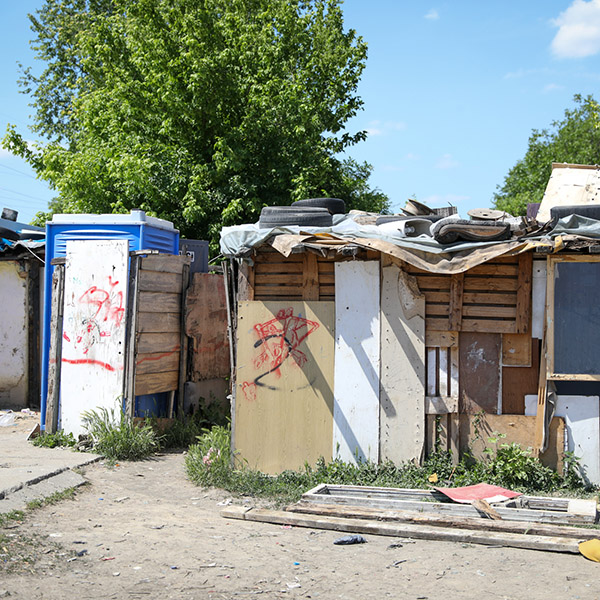Stories of Change

An informal Roma settlement in Belgrade. This is one of the settlements where children who visit the CWS-supported drop-in shelters live.
Going the extra mile so that children don’t fall behind in school during the pandemic
Iljmija and his family live in Belgrade, Serbia. He comes from a big family with six siblings. Like in many marginalized Roma families, Iljmija’s parents support their family by collecting recyclables. They often have their children help, so Illjmija often works on the streets.
In addition to participating in the CWS-supported Protection through Education program, Illjmija also visits the CWS-supported drop-in shelters operated by the Centre for Youth Integration. Usually when he visits the shelters, he can eat a hot meal, take a shower, get a change of clothes and relax with his friends. During the pandemic, the shelters were initially closed. Now they are open on a very limited basis so that children can still access essential help.
Despite his harsh living conditions, Illjmija is now regularly attending school. But the outbreak of the coronavirus pandemic left him in a tough situation. The official school program was broadcast on national television, and teachers used messaging apps to provide additional support. But Illjmija couldn’t watch his classes on TV. His parents don’t own a phone, so he couldn’t get that extra support…or even receive his homework assignments.
At the end of the day, though, Illjmija will be graded just like the other students who do have TV and phone access. His only other option would be to take an exam during the summer holidays and risk failing the school year. For Roma children like Illjmija who come from informal settlements, this type of setback can often make them give up on overcoming all of the challenges between them and an education.
The team from the Protection through Education program and Illjmija’s teacher stepped in to help him. The program team were able to get in contact with his parents, which is a challenge because they are often away from home working on the streets. They told the team that they weren’t able to take Illjmija to his school, where he could receive extra support to make up for what he was missing. So two educators from the Protection through Education team took him instead.
Illjmija’s teacher put together a learning corner in part of the school yard, where she could safely teach him during the pandemic. She prepared extra lessons and assignments for him and worked alongside the program educators when needed. Everyone took precautions by wearing masks, social distancing and using disinfecting sprays.
With the extra support, Illjmija successfully completed his assignments and got his grades. Despite the pandemic, and thanks to his teacher and the Protection through Education team, he didn’t fall behind.
